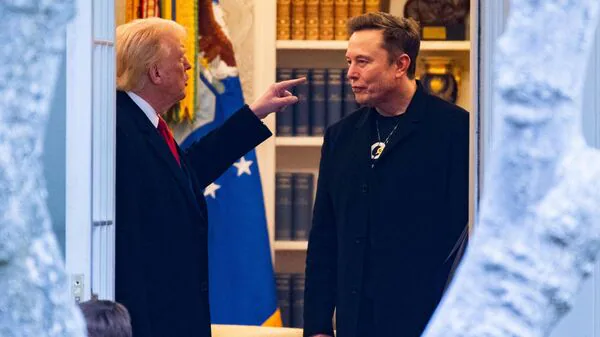Elon Musk has officially announced his departure from the Trump administration, concluding his time as the informal head of the Department of Government Efficiency. His exit marks the end of a short-lived but widely debated effort to reshape federal operations under the banner of cost reduction and administrative reform.
The Department of Government Efficiency, established in early 2025, was part of a broader initiative by President Donald Trump to reduce bureaucracy and eliminate excessive government spending. Although Musk never held a formal cabinet position, he was recognized as the principal architect behind the department’s aggressive policies aimed at streamlining federal agencies.
Throughout his tenure, Musk promoted bold fiscal reforms, including large-scale automation and a dramatic reduction in staffing across various federal departments. The administration reported a reduction in public spending, though the exact figures remain under scrutiny by independent analysts and political observers.
Musk’s policies led to significant changes, including the dismissal or reassignment of a considerable portion of the federal workforce. Supporters hailed the moves as necessary steps toward fiscal responsibility, while critics argued that the reforms disrupted essential services and demoralized public sector employees.
The internal challenges facing the department intensified in recent months, with several high-ranking staff members resigning over concerns about the direction of the agency. Reports also indicated growing friction between Musk and other members of the Trump administration, particularly around differences in policy priorities and spending legislation.
Adding to the complications, questions have been raised about the legal foundation of the department itself, as well as the authority under which Musk operated. Some legal experts have voiced concerns about accountability, transparency, and adherence to constitutional processes.
In his parting statement, Musk cited bureaucratic resistance and political interference as key obstacles that ultimately led to his decision to leave. He expressed disappointment in what he described as a lack of commitment to real structural change, while affirming his intention to return to his private ventures in technology and space exploration.
The White House has confirmed Musk’s exit and reaffirmed its commitment to the department’s core mission. Officials stated that a transition plan is underway and that efforts to improve efficiency in federal operations will continue under new leadership.
As the administration moves forward, Musk’s brief stint in government will likely remain a topic of discussion, both for its ambitious goals and the controversies it generated. His departure underscores the complexity of introducing rapid reform in large public institutions and highlights the challenges of bridging private-sector innovation with public governance.



